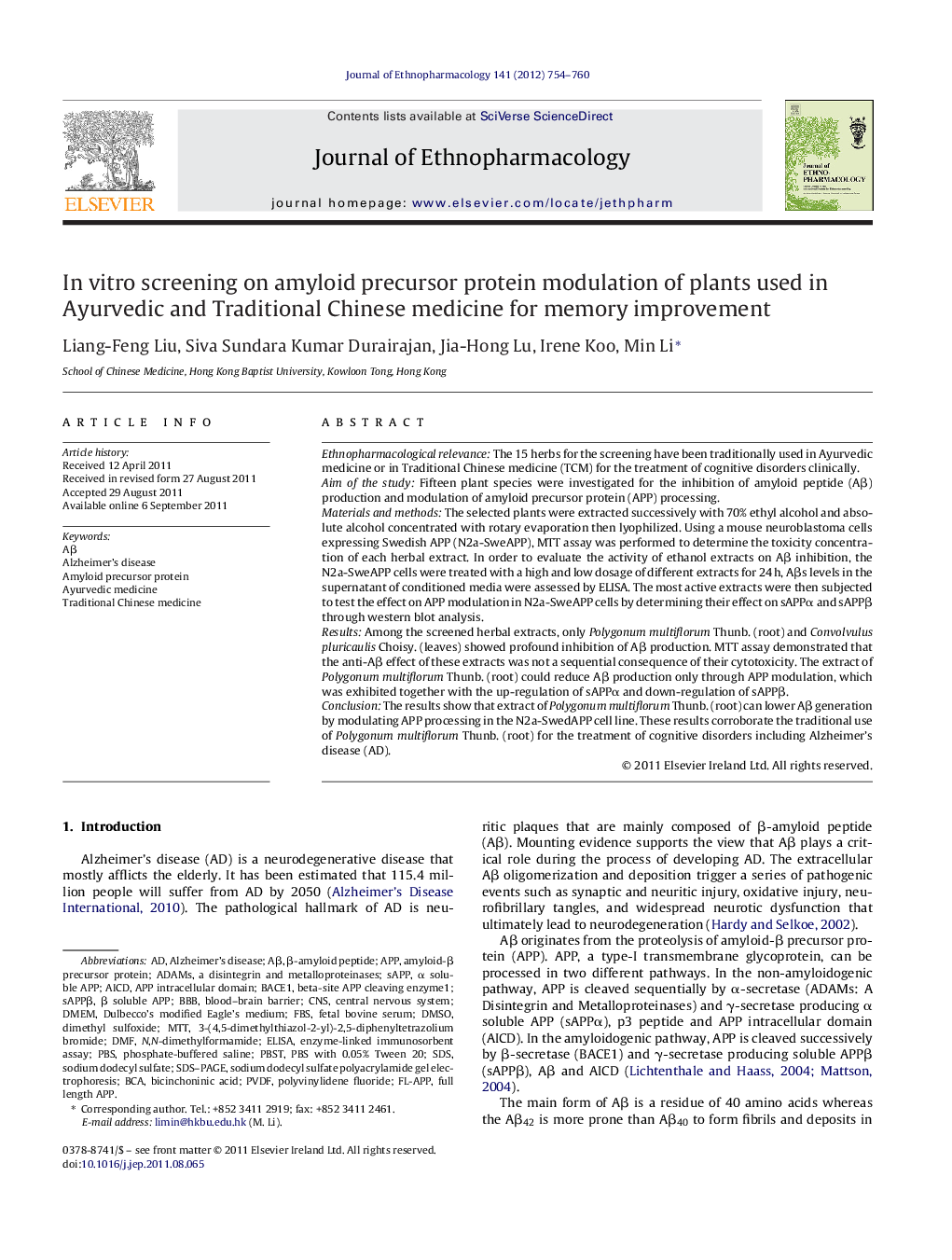| کد مقاله | کد نشریه | سال انتشار | مقاله انگلیسی | نسخه تمام متن |
|---|---|---|---|---|
| 2545615 | 1123969 | 2012 | 7 صفحه PDF | دانلود رایگان |

Ethnopharmacological relevanceThe 15 herbs for the screening have been traditionally used in Ayurvedic medicine or in Traditional Chinese medicine (TCM) for the treatment of cognitive disorders clinically.Aim of the studyFifteen plant species were investigated for the inhibition of amyloid peptide (Aβ) production and modulation of amyloid precursor protein (APP) processing.Materials and methodsThe selected plants were extracted successively with 70% ethyl alcohol and absolute alcohol concentrated with rotary evaporation then lyophilized. Using a mouse neuroblastoma cells expressing Swedish APP (N2a-SweAPP), MTT assay was performed to determine the toxicity concentration of each herbal extract. In order to evaluate the activity of ethanol extracts on Aβ inhibition, the N2a-SweAPP cells were treated with a high and low dosage of different extracts for 24 h, Aβs levels in the supernatant of conditioned media were assessed by ELISA. The most active extracts were then subjected to test the effect on APP modulation in N2a-SweAPP cells by determining their effect on sAPPα and sAPPβ through western blot analysis.ResultsAmong the screened herbal extracts, only Polygonum multiflorum Thunb. (root) and Convolvulus pluricaulis Choisy. (leaves) showed profound inhibition of Aβ production. MTT assay demonstrated that the anti-Aβ effect of these extracts was not a sequential consequence of their cytotoxicity. The extract of Polygonum multiflorum Thunb. (root) could reduce Aβ production only through APP modulation, which was exhibited together with the up-regulation of sAPPα and down-regulation of sAPPβ.ConclusionThe results show that extract of Polygonum multiflorum Thunb. (root) can lower Aβ generation by modulating APP processing in the N2a-SwedAPP cell line. These results corroborate the traditional use of Polygonum multiflorum Thunb. (root) for the treatment of cognitive disorders including Alzheimer's disease (AD).
Figure optionsDownload high-quality image (123 K)Download as PowerPoint slide
Journal: Journal of Ethnopharmacology - Volume 141, Issue 2, 1 June 2012, Pages 754–760